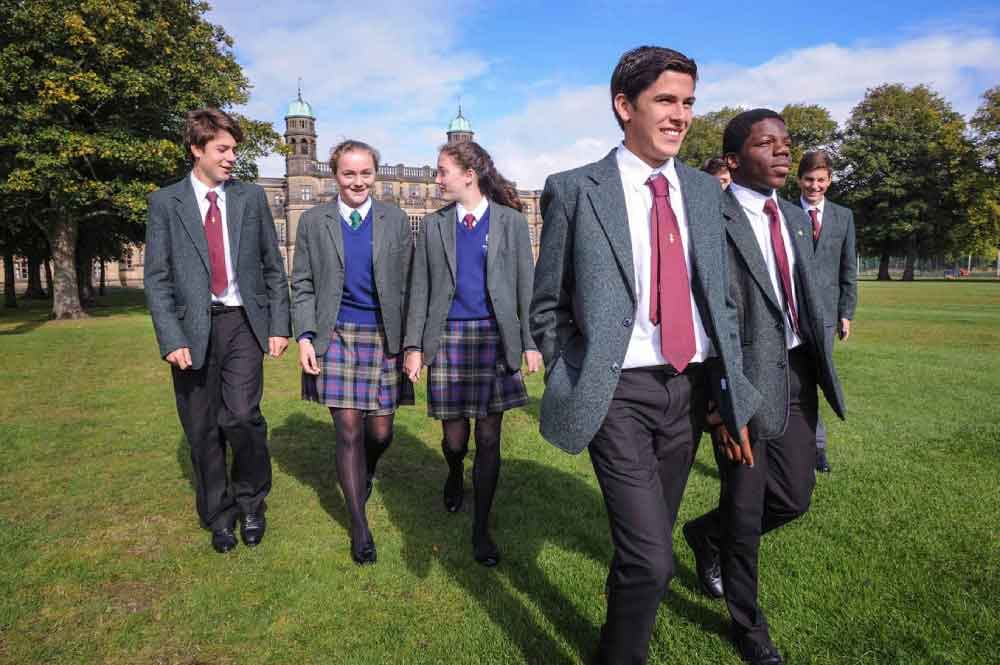Stonyhurst College, UK
Creating“men and women for
others” since 1593
Over 400 years of academic heritage
Our sister school, Stonyhurst College was originally founded in Saint-Omer, near Calais, in 1593 by Fr Robert Persons SJ under the patronage of Philip II of Spain. Stonyhurst is the oldest continually active Jesuit school in the world. Our story is more than 400 years old and we now sit at the cutting edge in independent education with our traditions to support us. We empower our boys and girls to be the best that they can be, shaping leaders of the future who carry a sense of purpose and a desire to make the world a better place.


Stonyhurst has an 800-strong pupil body comprising the 500 pupils of Stonyhurst College (13-18) plus the 300 pupils at the preparatory school, Stonyhurst St Mary’s Hall (3-13). The school takes pride in its global outlook, welcoming applications from students of all backgrounds. With children from over 28 countries, our cultural diversity adds to the richness and strength of the community.
The historic school is based in a magnificent Grade I listed building within a 1,000-acre estate, set against the picturesque backdrop of Lancashire’s Ribble Valley.













